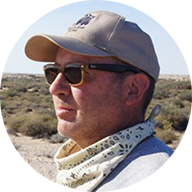Why a Desert City Became the First UNESCO Creative City of Gastronomy in the USA
As part of the Native Plants & Traditional Foodways as Intangible Heritage & Economic Resource public lectures, Dr Jonathan Mabry from the University of Arizona Southwest Center and Desert Laboratory will present how a city in the heart of the Sonoran Desert may seem an unlikely global leader in using food as a critical factor in sustainable development. This presentation will describe how Tucson leveraged more than 5,000 years of plant-people relationships and recent food system innovations to become the first UNESCO Creative City of Gastronomy in the USA and a thought leader in the global Creative Cities Network.
Event details
Date: Tuesday 4 October
Time: 12-1pm
Venue: W431 - Forgan Smith Building
Zoom: https://uqz.zoom.us/j/89818881625
These events were developed by the UQ IP and Bioeconomy group with support from the ARC Training Centre for Uniquely Australian Foods, Centre for Policy Futures, Past and Present Research Cluster (School of Social Sciences), and The Carbon and Cultural landscapes of Mithaka Country Project.
 The presenter
The presenter
Jonathan Mabry, PhD is an anthropologist and archaeologist at the University of Arizona Southwest Center and Desert Laboratory. His investigations documented that Tucson, Arizona, with archaeological evidence of more than 4,000 years of settlement and farming, is the oldest continuously inhabited and cultivated place in the USA. He was an early leader in the locavore and heritage foods movements in southern Arizona, and was lead author of the application that obtained Tucson’s designation as the first UNESCO Creative City of Gastronomy in the U.S. He currently serves as liaison to UNESCO for Tucson Creative City of Gastronomy and as Executive Director of the non-profit organization managing the designation.

